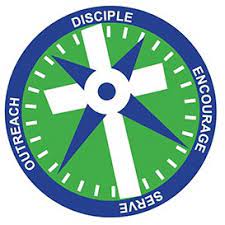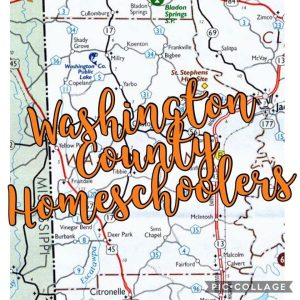Co-ops
A homeschool co-op, short for “homeschool cooperative” or “homeschooling co-operative,” is a collaborative educational arrangement where families who homeschool their children come together to share resources, expertise, and teaching responsibilities. The primary goal of a homeschool co-op is to provide a more diverse and comprehensive educational experience for the children involved while allowing parents to distribute the teaching load and take advantage of each other’s strengths.
In a homeschool co-op, families typically meet regularly, often weekly or bi-weekly, to facilitate group learning activities, classes, workshops, and social interactions. The co-op structure can vary widely based on the preferences and needs of the participating families, but some common features include:
- Shared Teaching: Parents in the co-op take turns teaching specific subjects or skills based on their expertise or interests. This helps distribute the teaching workload and can provide a more well-rounded education for the children.
- Classes and Workshops: Co-ops may offer a variety of classes or workshops, ranging from academic subjects to arts, music, physical education, and other extracurricular activities. These classes can provide opportunities for children to learn from different educators and explore various subjects in a group setting.
- Group Projects: Co-op members might engage in group projects, science experiments, presentations, and other collaborative activities that might be challenging to do solely within a single-family homeschooling environment.
- Social Interaction: Co-ops provide a platform for homeschooled children to interact with peers and form social connections. This is often seen as a valuable aspect of homeschooling co-ops, as it helps children develop interpersonal skills and friendships.
- Resources Sharing: Families can share educational resources, materials, curriculum recommendations, and teaching strategies. This can be particularly beneficial for parents who are new to homeschooling or who want to diversify their teaching approaches.
- Field Trips and Outings: Co-ops often organize field trips, outings, and educational experiences outside of the typical classroom environment, allowing children to learn in real-world contexts.
It’s important to note that the structure and activities of homeschool co-ops can vary widely based on the needs and preferences of the participating families. Some co-ops may focus more on academic subjects, while others might prioritize hands-on learning, arts, or extracurricular activities. Additionally, co-ops can be formal or informal, and the degree of parental involvement and commitment can differ.
Homeschool co-ops provide a way for homeschooling families to leverage collective resources and create a supportive community while enriching their children’s educational experiences.
Mobile County, AL Co-Ops
Fridays, 9am-3pm
-
Deven Vasko
-
251-214-6084251-214-6084
-
compasspointhomeschool@gmail.comcompasspointhomeschool@gmail.com
-
compasspointhomeschool.comcompasspointhomeschool.com
-
Interview with Compass Point Christian AcademyInterview with Compass Point Christian Academy
Thursdays, 10am-3pm
-
Brandy Edmonds
-
MBCAcademy@yahoo.comMBCAcademy@yahoo.com
-
mobilebaychristianacademy.commobilebaychristianacademy.com
-
Interview with Mobile Bay Christian AcademyInterview with Mobile Bay Christian Academy
Tuesdays, 8am-3pm
-
Bonita Harris
-
251-599-2849251-599-2849
-
Harrisb.hca@gmail.comHarrisb.hca@gmail.com
-
heartwoodchristianacademy.comheartwoodchristianacademy.com
-
J Spears
-
910-684-5665910-684-5665
-
jspears@classicalconversations.comjspears@classicalconversations.com
-
facebook.com/SouthALclassicalconversationsfacebook.com/SouthALclassicalconversations
Wednesdays, 9am-1:30pm
-
Kacy Waites
-
208-964-2922208-964-2922
-
gchsc.al@yahoo.comgchsc.al@yahoo.com
-
facebook.com/groups/394122746144174facebook.com/groups/394122746144174

Wednesdays, 11am-3pm
-
Rebecca Baxter or JP Kinney
-
251-751-2697251-751-2697
-
Play@childofthewild.usPlay@childofthewild.us
-
https://childofthewild.us/https://childofthewild.us/
Baldwin County, AL Co-Ops
Fridays, 9am-1pm
Daphne, AL
Mondays, 9am-12pm
-
Navigatorshomeschoolcoop@gmail.comNavigatorshomeschoolcoop@gmail.com
-
homeschool-life.com/al/thenavigatorshomeschool-life.com/al/thenavigators
Mondays, Wednesdays, Fridays
-
Mandy Bezeredi
-
251-990-0423251-990-0423
-
mandy.bezeredi@coastalalabama.edumandy.bezeredi@coastalalabama.edu
-
coastalalabama.edu/events/community-classescoastalalabama.edu/events/community-classes
Washington County, AL Co-Ops
Fridays
-
Summer Ankerson
-
washcoalhomeschoolers@gmail.comwashcoalhomeschoolers@gmail.com
-
facebook.com/washcoalabamahomeschoolersfacebook.com/washcoalabamahomeschoolers
Harrison County, MS Co-Ops
-
Ashley Rodriguez
-
410-693-8825410-693-8825
-
stellamarisexplorers@gmail.comstellamarisexplorers@gmail.com
-
stellamarisexplorers.comstellamarisexplorers.com










